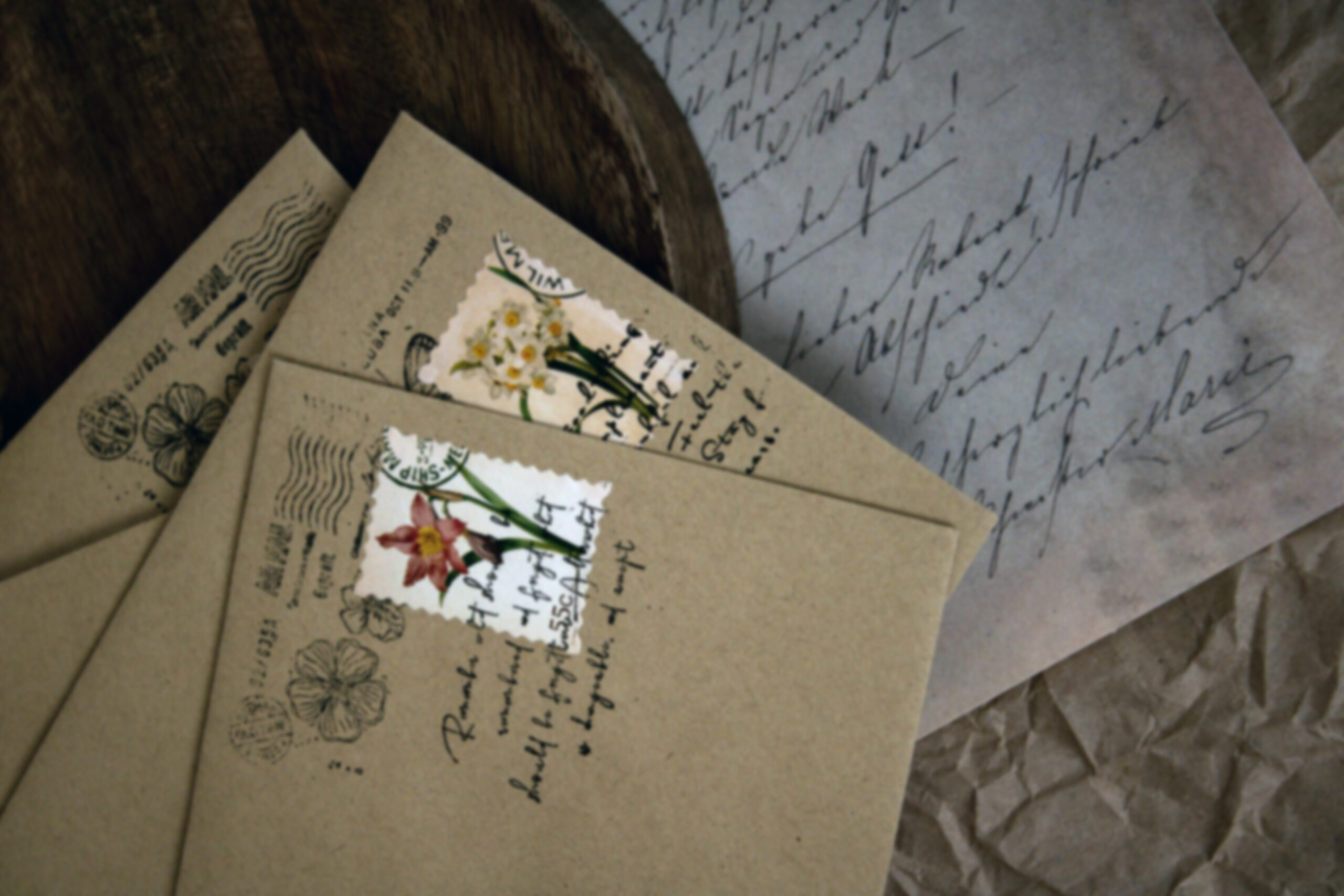Of all the forms of notes and documents that pop up in “found fiction,” letters are perhaps my favorite. A lot is assumed and unexplained, and a collection, over time, gains a character all its own. In a story that unfolds through letters, we get to exist inside people’s heads, toeing the line between formal and personal, reserved and confessional—there’s so many opportunities to playwith the narrative. Here are eight clever and compelling examples…
“The Buried Years” by Loreen Heneghan
Our narrator isn’t fond of the skeletons that walk along the god’s road towards the beyond, even though he is a doctor. Empirical studies have shown that the grieving think they can recognize the skeletons of their loved ones, although they actually can’t. So it comes as a surprise when, one night, our doctor, heading to his house, finds a solitary skeleton walking by and is sure he knows who it belongs to. He is a man of reason, he reassures his betrothed in this letter, but sometimes, one has to believe what one sees with their eyes and knows in their heart.
“To the (mostly) living” by J.D. Harlock
Humans have become so good at doing Death’s job that Death now feels weary, “obsolete and redundant,” so It’s turning in Its short and sweet (and funny) resignation letter…
“From the Editorial Page of the Falchester Weekly Review” by Marie Brennan
Benjamin Talbot recently announced his discovery of a specimen of the legendary cockatrice, a creature whose existence science hasn’t been able to confirm, in the pages of the Falchester Weekly Review. Isabella Camherst, a dragon naturalist who just returned from a voyage in the very same region where Talbot found the creature, writes to the magazine, expressing her curiosity about his discovery and her enthusiasm for his article on the same—sharing knowledge benefits everyone, after all. Talbot is initially encouraging, but when Isabella mentions that she herself hadn’t heard of the cockatrice during her research in the region, Talbot takes offense at her doubt and isn’t very polite in questioning her merit. Isabella doesn’t suffer such attitudes, however, and an exciting debate follows, with both parties exchanging some very cleverly-worded, entertaining letters.
I’ve been an ardent fan of Brennan’s Memoirs of Lady Trent books, and if you like Isabella here, you would enjoy hearing from her about her entire career as a renowned (and the first female) dragon naturalist—especially when voiced by Kate Reading, who narrates the audiobooks.
“Not Quite What We’re Looking for Right Now” by Jana Bianchi
As a writer, I’m quite familiar with rejection letters, many of which contain the phrase “not quite what we’re looking for right now.” In this 312-word story, Bianchi takes the dreaded rejection letter and turns into something much more horrible, but in a way that makes all my actual rejections seem a lot more pleasant by comparison. I’m curious to know what the acceptance letter sent to the author for this story looked like.
“Therefore What the Multiverse Has Joined Together, Let No One Separate” by Dominica Phetteplace
It’s hard to describe this little story without giving away the depth and surprise that comes from knowing, towards the end, the sender and receiver of this letter, which describes a picture that came out of the only known white hole. Yxa was the one whose work made it all possible, although she never got to see the full picture—of a beautiful flower—before she died. There’s work to be done now—policies to be debated, risks of being attacked through the hole by something malicious to be calculated. There’s also hope to maintain and good things to take care of, which is what the letter aims to do.
A short, beautiful story.
“Customer Feedback (Secondhand Alchemical Goods)” by Arnav Sood
All our narrator wanted was a Philosopher’s Stone. Instead, they were given a Psychologist’s Stone and told that it was pretty much the same thing. It wasn’t, and now our narrator wants a refund. But there’s a strict “no refund” policy, so alternatives are offered, none of which are what the narrator needs. Deeply disappointed, they decide some action needs to be taken, which is exactly what they’ve done with this letter of customer feedback.
“Mirage-Stories” by Ernesto Fuentes
Tenolo used to be a pirate, but now he’s in the desert, among a people who think his tales of the sea—a place with so much water—are mirage-stories. In this short, optimistic letter to Jojober, a fellow pirate, Tenolo talks about the expectation that he’s destined return to the sea in due time. He thinks he’ll stay where he is, however, for he’s found something that a pirate can never obtain, and he wants to share it with Jojober too.
“Subject: More Monsters Will Not Make Us Safer” by Paul Crenshaw
As if school shootings weren’t dystopian enough, in this story, Paul Crenshaw describes a version of the United States where children in schools are protected by the likes of T. rexes, ogres, and dragons from dangers such as firenadoes, reverse lightning, and, of course, school shooters. Rick T. Edge understands their necessity, but disagrees very much with the decision to increase the number of monsters looking after the students. These kids, he argues in this letter, need to learn how to defend themselves without the protection of monsters. How else, he asks, will they survive in this harsh world?
